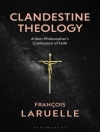Adam Smith (1723–1790) is famous around the world as the founding father of economics, and his ideas are regularly quoted and invoked by politicians, business leaders, economists, and philosophers. However, considering his fame, few people have actually read the whole of his magnum opus The Wealth of Nations – the first book to describe and lay out many of the concepts that are crucial to modern economic thinking. The Routledge Guidebook to Smith’s Wealth of Nations provides an accessible, clear, and concise introduction to the arguments of this most notorious and influential of economic texts. The Guidebook examines:
- the historical context of Smith’s though and the background to this seminal work
- the key arguments and ideas developed throughout The Wealth of Nations
- the enduring legacy of Smith’s work
The Routledge Guidebook to Smith’s Wealth of Nations is essential reading for students of philosophy, economics, politics, and sociology who are approaching Smith’s work for the first time.












